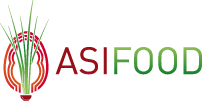AsiFood aims to help modernise education in the context of ASEAN integration through the creation of new masters programmes in food safety and food quality. The project is motivated by the following considerations:
The incidence of food-related outbreaks, mainly related to food safety, affects consumer’s health, quality of life and national economies, especially in developing countries. In the recent years, several cases have attracted attention in Asia (melamine in dairy products, Ebola-Reston virus in pigs, Salmonella in fermented foods and chloropropanol in soy sauce) while diarrhea diseases are still highly present. The sources of these problems are present in all the supply chain from agriculture to transformation and retail. Moreover, the food demand in Asia has been growing quickly and is still expected to grow by up to 77% by 2050.The resulting rapid transformation from extensive to intensive agriculture has led to the uncontrolled application of chemical fertilizer and pesticide. The more dramatic the increase has been, the less controlled the situation is. For instance in Cambodia, about 90% of chemical fertilizers and pesticides are illegally imported and pesticide residues are above acceptable limits for a high percentage of vegetables. For its integration programme, the ASEAN community has put Food security as one of its 12 priorities. Food safety is supported as illustrated in Vietnam where a national food safety strategy has been approved for the 2011-2020 period, with the aim of improving the public awareness. Consequently, several projects are running aiming at upgrading food safety institutional and policy environment and improving practices and skills. At the top of this structure, the Law in Food Safety is completed by other actions: training in production and trading, analytical and human resource development, control… Although this trend can be seen in all countries, the level of regulation and control is still heterogeneous in ASEAN and examples are given of companies selling in neighbour countries imported illicit pesticides that cannot be sold in their own country. A driving force of governmental action is the economic impact. Showing the relationship between economic growth, trade facilitation and food safety, a governmental survey recommended the creation of a food safety agency in Cambodia. Eurocham recommends the same for Vietnam. In the entire region, the export market is suffering losses due to unsafe foods and products and inadequate quality management system. Food processing companies, especially SME, have difficulties to adapt with requirements in food safety and quality management to export. The domestic market for its part is suffering with unsure product safety resulting in public health concerns. Moreover, the part of the population living on agriculture is high, over 49% in Vietnam, and despite the development of the sector, their income remains low and uncertain due to the unguaranteed production both in product quantity and quality. As seen above, most of these problems are due to both qualitive and quantitive limitation in food safety management. Main problems are that expertise capacity of staff varies, most of them do not work in compliance with the specialized discipline training and human resources have not been professionally trained. For instance each individual only understand his responsible step without overview of whole food supply chain. Moreover, the inspection forces are thin and inadequate (objective of one food safety inspector per 10,000 people in 2010 in Vietnam). Most training, from vocational to graduate levels, are not tailored to the stakeholder’s needs. This lack at the human resource level is even related to a lack at the training programs level, including HEI.The DG Sanco program BTSF (Better Training for Safer Food) was particularly interesting and gave good results. However it targeted mostly the processing companies with few actions towards higher education. In Cambodia a recent survey of the Department of Higher Education pointed out a tremendously lack of human resources in the field of engineering especially Food Processing, Agriculture Project AsiFood Page 46 of 145 and Food Safety. In Vietnam, the lack concerns specialized training at the master level. The first master in the field is opening with a master in Food technology in VNUA with an important part on food safety and quality management. Food safety is thus a stringent global problem in ASEAN that our program proposes to address globally by training populations from students to professionals of private companies and public agencies. This program stresses particularly upon issues that have not been addressed up to now such as the necessity to manage food safety in a global supply chain strategy and, in accordance to ASEAN2015 objectives, to integrate food safety homogeneously in all the region with international standards and with training of international managers. In this goal, it will support academic programs as well as capacity building to be disseminated in universities, companies (focusing SME), organizations and agencies of ASEAN in a network structure linked with European companies and agencies.

